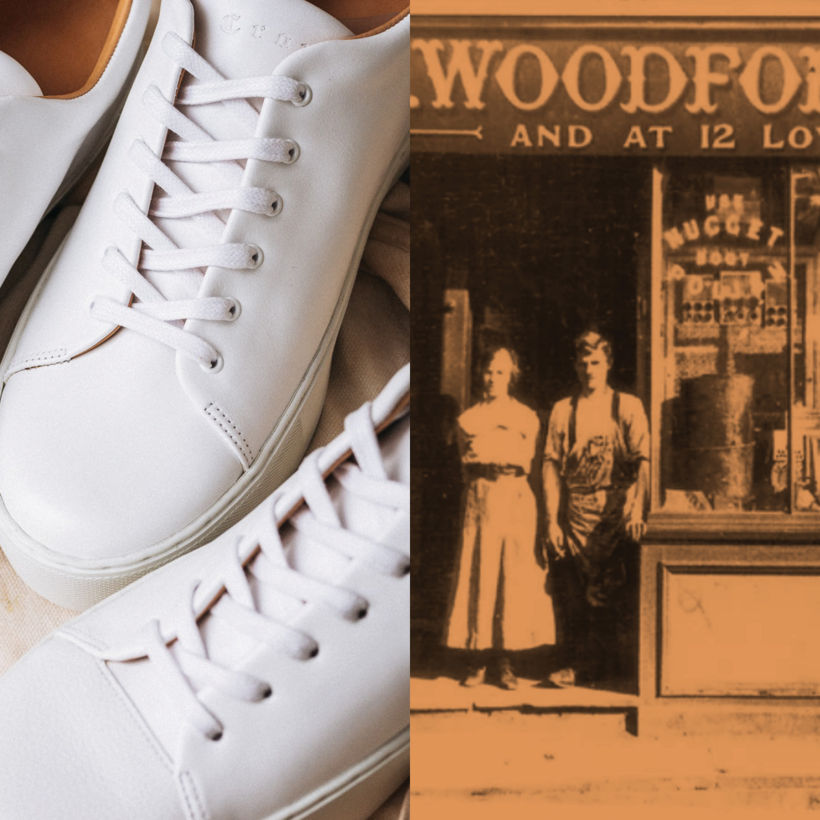“The hardest thing is explaining to customers how a sneaker at £800 is a bargain,” says Chris Woodford, owner, managing director, and master shoemaker at Crown Northampton. “But it genuinely is.” (That’s around $980.)
Originally established as a repair shop in 1908 by Woodford’s great-great-grandfather Ernest, Crown exists as one of the last holdouts of heritage manufacturing in Northampton, England, a town built around the shoemaking industry.
In the Middle Ages, Northampton’s good river links and proximity to London made it a regular stop-off point for travelers and a burgeoning market town. When combined with a trifecta of shoemaking resources—cattle for leather, water for tanning, and oak bark for soles—Northampton soon became famed for producing superlative footwear.

“To this day, a lot of the streets and houses in certain central areas have interconnecting lanes and roads to the rear so shoemakers could easily accept in leather deliveries, as they often worked from home,” says Mark Higgs, Crown’s brand manager. “At one point there were over 1,800 shoemakers in the town.”
Now there are only around 20, and Crown is one of the select few whose shoes remain 100 percent hand-manufactured. They are made by nearly two dozen workers, some of them third-generation shoemakers, who operate machines that have been tried and tested for more than four decades.

“All being well, and by sticking to our principles, we are expecting all staff to stay until retirement, or long after if they so choose,” says Woodford. The highly skilled jobs require years of training, so Crown tries to limit worker turnover.
“We do not work to the traditional seasonality that’s normally found in fashion and prefer to create timeless core classics,” says Woodford. “We are a truly independent business with no investors to pay back, so there is no need for forced, unsustainable growth.”
Crown, like many British heritage brands, is big in Japan. That country has been its main wholesale market over the last 10 years. However, for individual customers, each pair is made to order. Whether it be dress shoes or sneakers, Crown’s footwear is always generously constructed with leathers sourced only from world-class tanneries, such as Leeds’s Charles F. Stead & Co. (established in 1825) and Chicago’s Horween Leather Co. (which dates from 1905).

Higgs’s daily go-to favorite from his own company’s catalogue is the Harlestone Hand Stitch Derby in Black Scottish Deer Suede with a black sole. It’s an ingeniously versatile hybrid dress sneaker whose look is elegant and understated.
Crown quotes a worldwide delivery time of between 9 and 12 weeks, a decidedly more leisurely experience than ordering from Amazon. But everything about Crown’s built-to-last shoes defiantly hearkens back to the days of quality domestic manufacturing, long before built-in obsolescence and the rise of fast fashion.
Spike Carter is a writer and filmmaker. His next project is a documentary about Eric Roberts


